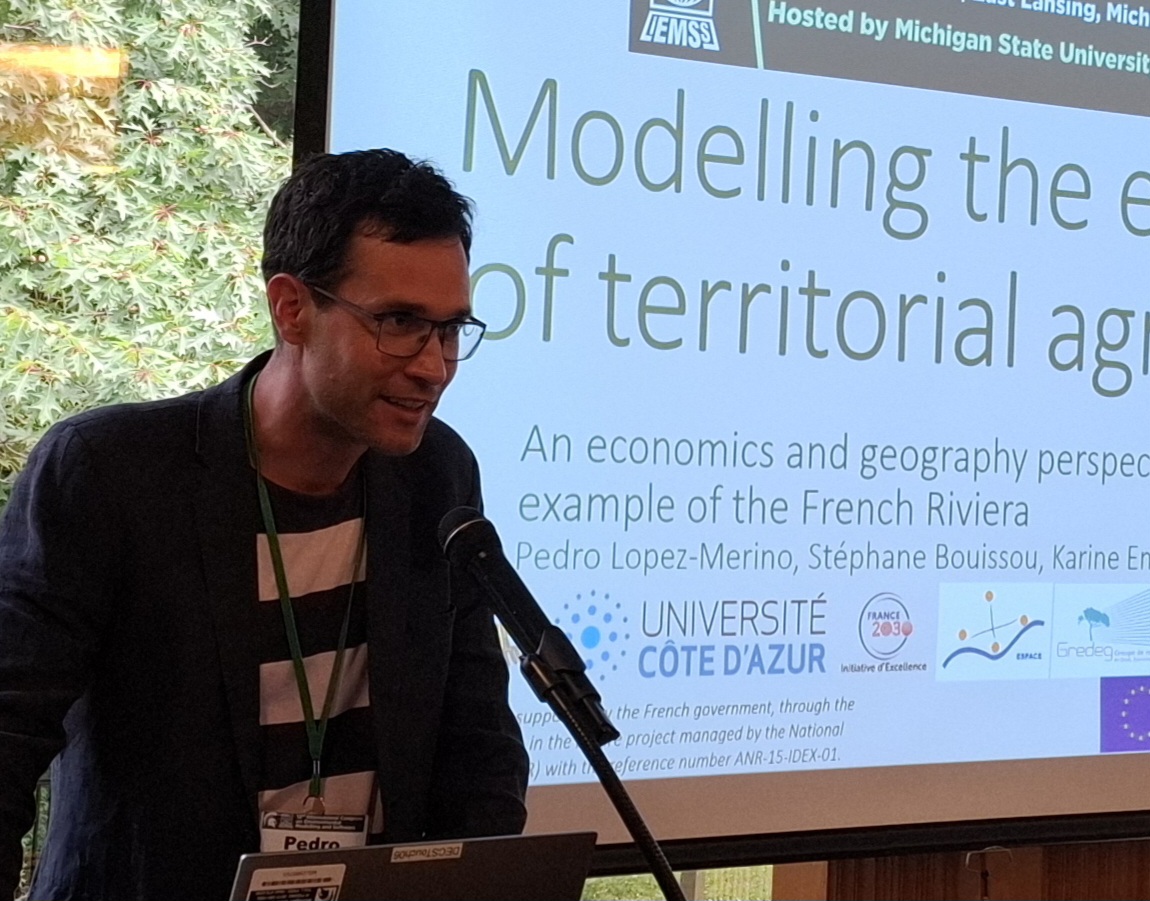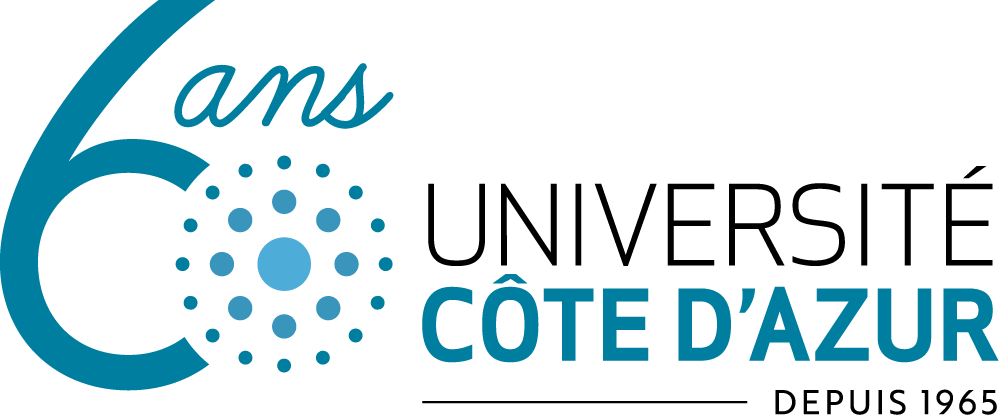Post-doctorant
Pedro Guillermo Lopez Merino

Coordonnées
- Fax
- +33 4 93 65 37 98
- Pedro.LOPEZ-MERINO@univ-cotedazur.fr
Discipline(s)
Thèmes de recherche
- Circular economy
- Plastics
- Recycling
- Agroecological transition
- Territorial food systems
- Agent-based modelling
- Serious games
- Participatory research
Informations complémentaires
Pedro holds a PhD in Economics from the University of Paris-Dauphine (PSL), and joined Gredeg in December 2022. He works on two research projects with a strong interdisciplinary component, and teaches courses in Circular Economics and Economics of Innovation in two masters programs at EUR ELMI.
- Scholar: https://scholar.google.com/citations?user=VcasjiYAAAAJ&hl=en- HAL: https://hal.science/search/index/q/*/authIdHal_s/pedrolopez-merino
- ResearchGate: https://www.researchgate.net/profile/Pedro-Lopez-Merino
- Linkedin: https://www.linkedin.com/in/pglopezmerino/
(French below)
-
PLASTRON project (2024 – 2026)
The INTERREG-Marittimo PLASTRON project studies the recovery and reuse of marine plastic waste, with two priorities: i) addressing the case of fishing nets and plastic materials posing a threat to marine fauna; ii) considering the reuse of waste as close as possible to collection points in the form of secondary raw materials and new materials that can be reintegrated into the production cycle. These two pilot actions will be implemented in the communes of Stintino (Sardinia) and Île Rousse (Corsica). The economists involved in the project are responsible for developing a sustainable circular economy model for marine plastics, adapted to the realities of these two pilot sites. The transformation of plastic waste and its reuse are studied in the PLASTRON project by two teams of physicists and chemists from the University of Genoa.
- Keywords: circular economy, plastics, recycling
- Lead researchers : Christophe Charlier, Eric Guerci
-
TEFOR project - TErritorial FOod systems Resilience (2022 – 2025)
The TEFOR project brings together a multi-disciplinary group (economics, geography, archaeology, agronomy) observing the mechanisms of territorial food resilience. The project began with a diagnosis of the current situation in three agglomerations of communes in the western part of the Alpes-Maritimes, to determine the levers of resilience and sustainability in future trajectories. Then, we modelled (with Agent-based modelling, ABM) to derive both economic and spatial perspectives, and to create tools to support territorial ecological transitions for tomorrow's agriculture.
- Keywords: Agroecological transition, Territorial food systems, Agent-based modelling, serious games, participatory research
- Lead researcher: Nathalie Lazaric
----French---
Docteur en économie à forte composante interdiscilinaire par l’Université Paris-Dauphine (PSL), Pedro a rejoint le Gredeg en décembre 2022. Il travaille notamment sur deux projets, et donne des cours d’Economie circulaire et d’Economie de l’innovation dans le cadre de deux masters à EUR ELMI.
-
Projet PLASTRON (2024 – 2026)
Le projet INTERREG-Marittimo PLASTRON étudie la valorisation et la réutilisation des déchets plastiques marins, avec deux priorités : i) traiter le cas des filets de pêche et des matériaux plastiques constituant une menace pour la faune marine ; ii) envisager une réutilisation des déchets au plus près des lieux de collecte sous forme de matières premières secondaires et de nouveaux matériaux pouvant être réinsérés dans le cycle de production. Ces deux actions pilotes seront mises en œuvre sur les communes de Stintino (Sardaigne) et d’Île Rousse (Corse). Les économistes engagés dans le projet ont la charge de développer un modèle d’économie circulaire durable du plastique marin adapté aux réalités de ces deux sites pilotes. La transformation des déchets plastiques et leur réutilisation sont étudiées dans le projet PLASTRON par deux équipes de physiciens et chimistes de l’Université de Gênes.
- Mots-clé : économie circulaire, plastique, recyclage
- Responsables : Christophe Charlier, Eric Guerci
-
Projet TEFOR - TErritorial FOod systems Resilience (2022 – 2025)
Le projet TEFOR réunit un collectif multidisciplinaire (économie, géographie, archéologie, agronomie) observant les mécanismes de résilience alimentaire territoriale. Le projet a fait d’abord un diagnostic de la situation actuelle dans trois agglomérations de communes de la partie ouest des Alpes-Maritimes pour déterminer les leviers de résilience et durabilité dans les trajectoires futures. Par la suite, nous avons modélisé (avec les outils type Agent-based modelling, ABM) pour en tirer des perspectives à la fois économiques et spatiales, et créer des outils pour soutenir des transitions écologiques territoriales pour l'agriculture de demain.
- Mots clé : Transition agroécologique, Systèmes alimentaires territoriaux, Agent-based modelling, jeux sérieux, recherche participative
- Responsable : Nathalie Lazaric

















